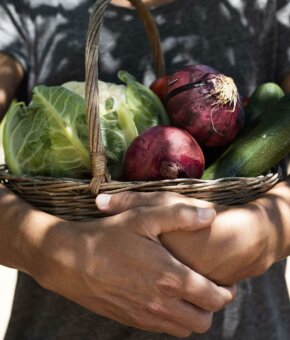
From mitigating climate change and boosting biodiversity to improving people’s health and stimulating the local economy: creating sustainable food producing cities has many upsides. But how can we bring sustainable food production back to the city? And what does it look like? These five inspiring TED talks offer insight.
When it comes down to creating sustainable food producing cities, there is no one-size-fits-all solution. Depending on the specific location of the city at hand, and the needs of its inhabitants, the means in order to grow local fresh food will vary. From vertical and indoor farming to urban beekeeping and hydroponics; the possibilities are endless. These speakers give an overview:
1) Vertical farming is the future
By 2050, the global population is projected to reach 9,7 billion. Many of them will live in cities. So how can we provide all these people with fresh and sustainable food? Investment-banker-turned-farmer Stuart Oda points to indoor vertical farming in order to save resources and provide for future generations.
2) The transformative power of urban agriculture
In the 1950’s, Detroit was an industrial giant with a booming population of 1,8 million. Now, only half a century later, the city has lost almost two thirds of its population and has become the poster child for urban decay. But according to farmer Devita Davison, these circumstances actually make Detroit the ideal spot for urban agriculture. In this spirited talk, Devita explains how urban farms have the potential to transform neighborhoods and build social cohesion whilst providing healthy and fresh food at the same time.”
3) Hydroponic food gardens for urban windows
This talk is for every urban dweller who believes their apartment is definitely too tiny to grow food. Inspired by the hydroponic techniques of NASA, Britta Riley has developed an open source system for growing plants in discarded plastic bottles. The results? Bountiful and delicious.
4) Urban beekeeping
To combat declining bee populations and boost local agriculture, everywhere around the world cities are picking up on urban beekeeping. A great development for cities, as healthy bees make a healthy planet and healthy people. In this talk, Noah Wilson-Rich explains why these buzzing creatures have the potential to revitalize both cities and a species.
5) Follow the data
Our current food system is optimized for one thing only: corporate profit. Because of this, farms no longer look like farms, but like factories. In addition, a third of all the food worldwide is wasted somewhere along the food supply chain, just because it was not perfect enough. But what if we would use big data to fix the broken food system and optimize it from a societal and ecological point of view? According to entrepreneur Erin Baumgartner, this is the path towards a healthier, zero-waste and more localized food system.
Looking for more inspiring stories and videos? Sign up for our monthly newsletter!



